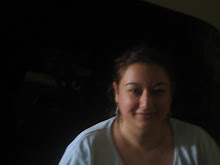Back in 1985, I fell in love with KL almost as soon as I landed there. It was a big, warm, overgrown village with all the modern amenities. The people were friendly and hospitable and just so much fun. We took our work very seriously, worked long hours in a deadline-driven industry (journalism), but we had fun even as we worked. (Deadlines were not measured in seconds in those low tech days, but they did drive the business.)
Going back to KL is kinda weird now. It's like going into the future a couple of centuries. Of course, all Asian cities have changed drastically in the past 25 years, but none quite like KL. In most other cities, the old lives on alongside the new. KL feels like the old city just vanished into thin air and was replaced overnight by this gleaming new one.
Some of the old landmarks are still there - the British-style railway station, the beautiful old Indian mosque, the Central Market. But the old buildings are hard to spot among all the glittering new high-rises. In 1985, the tallest building was 18 storeys high. Today, the city's skyline is dominated by the Petronas Towers, the highest twin towers in the world, soaring 88 storeys above terra firma.
The "plazas" are now called malls, as they are in most other Asian cities, and boast more designer and high-end brand names. There is an efficient light rail system and an equally efficient rail link to the huge and very modern airport located way outside the city.
More than the buildings and the railways, it's the psyche of KL that's changed. Among all this glittering steel and glass, Malaysians are currently fighting over the name of God. Does anyone stop to ask themselves: Does God care what we call him? Does he think mosques and churches should be attacked to settle this dispute over his name?
When I lived in KL 25 years ago, I worked in a thoroughly multi-cultural office. The camaraderie of the office often spilled over into impromptu parties after work. I shared a house with some colleaugues very close to the office, so many of the parties happened at our place. Despite differences in race, drinking and dietary habits, we all enjoyed our get-togethers.
The differences didn't divide so much as add variety to our lives. My first Eid in Malaysia was spent visiting the homes of several of my Malay friends. All of them had an "open house" that day - anyone could walk in and would be treated like an honoured guest. One of our hosts had even kept beer for us in his fridge - although he didn't drink himself, he wanted to be a good host to his non-Muslims friends.Similarly, Indian Hindus had an open house for Diwali and the Chinese for lunar new year. My two years in Malaysia passed quickly with all these festivities and the general friendship and hospitality of my colleagues and friends.
Now, Malaysia's three major communities live side by side, mostly peacefully (barring the odd controversy over God's name and such) - but not together. My taxi driver on the ride in from the airport assured me that the God controversy was incited by politicians for political gain. No doubt that is so, and such cynical politically-motivated stupidity is certainly not restricted to Malaysia.
But, while in KL, I couldn't help noticing that the communities are now partying separately.








